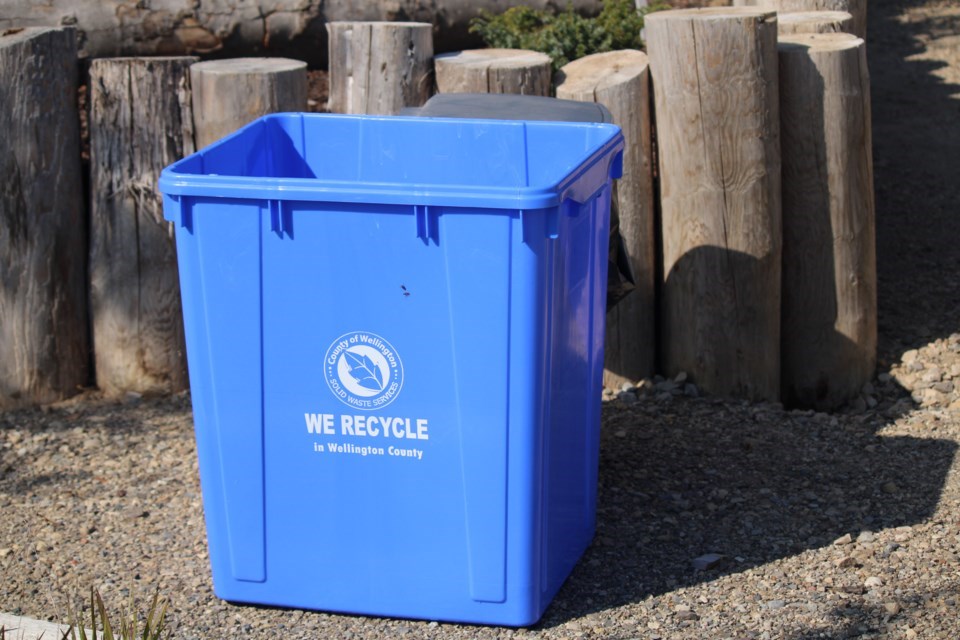WELLINGTON COUNTY – As the City of Guelph prepares for its transition away from recycling collection, the County of Wellington has decided to go in a different direction.
In response to the province's decision to transition to full producer responsibility, a system where printed paper and packing producers manage and fund all aspects of residential recycling, the County of Wellington has decided it will maintain its recycling services beyond the transition.
Approving staff recommendations during a Solid Waste Services Committee meeting Tuesday afternoon, a staff report said maintaining continuity will "fill gaps in recycling services between current service levels and those that the producers will deliver" while providing residents with convenient options to dispose of recycling materials and continuing to allow businesses access.
"The result of achieving recycling service continuity post-transition, will be greater satisfaction for residents and businesses while conserving landfill capacity through the diversion of recyclable materials," said the report. "Convenience and affordability enable greater participation in diversion programs."
According to the staff report, closing post-transition service gaps will capture up to 20 per cent of the county's total recycling tonnage that would "surely be lost to the landfill without these service continuity measures," equals five per cent of the County's annual waste tonnage disposed of in the landfill and could add over a year of landfill capacity.
Maintaining services is estimated to cost $303,600 annually while the transition itself is anticipated to save the county up to $2,000,000 annually.
However, staff said the annual costs could be further reduced as some residents who currently recycle using waste facilities are expected to embrace the convenience of what staff anticipate will be a "single-stream, cart-based curbside collection model."
Currently, up to half of the municipal recycling program costs are funded by producers.
Full producer responsibility for recyclables was initially limited to materials generated in the residential sector but later expanded to include schools, municipally or not-for-profit operated longterm care and retirement homes, parks and playgrounds and transit stations.
Sources of recyclables that will be ineligible for services under the full producer responsibility regime include municipal buildings and facilities, industrial, commercial and institutional organizations, including Business Improvement Areas, places of worship and not-for-profit organizations
The county's blue box program will transition to producer responsibility on July 1, 2025 with a six-month transition period to Dec. 31, 2025.
Isabel Buckmaster is the Local Journalism Initiative reporter for GuelphToday. LJI is a federally-funded program.



